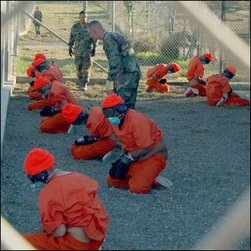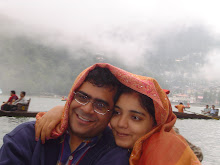
Nearly all "Western" nations have made some kind of protest about their citizens being held without recourse to due process in Guantanamo Bay, and some of them, including Denmark, Australia, Britain and Belgium have succeeded in efforts to have their citizens repatriated either to stand trial or to be released in their native country.
But Canada is the exception. Of the two Canadian nationals held at Guantanamo, Abdurrahman Khadr agreed to spy for the CIA in exchange for his release, while his brother Omar Khadr, who was just 15 at the time of his capture during a battle where he allegedly fought with Taleban forces against the invading U.S. troops, remains in custody. Khadr apparently took two bullets in that battle and allegedly killed one U.S. soldier.
Even if these charges are proved, Khadr meets the definition of a child soldier and should be a candidate for rehabilitation, not held in indefinite custody without recourse to any judicial system, including basic human rights that have been guaranteed since the time of the magna carta.
The decision by Khadr's lawyers to release a videotape of Khadr being interrogated and begging for help (or death) should be applauded. Hopefully it will shame the Canadian government into doing something. But then it looks like most folks in Canada won't be holding their breath.
My mind can't help but contrast the treatment of Khadr and other Guantanamo detainees, who at the most are accused of killing a handful of people, with the treatment of the real war criminals - Bush, Cheyney, Rumsfeld and companies like Blackwater are punished only by their profits, and (one can hope) guilty consciences.
St. Augustine narrates the story of Alexander the Great asking a pirate in his custody what he means by seizing ships upon the seas. The pirate replies:
What do you mean by seizing the whole earth: but because I do it with a petty ship, I am called a robber, whilst you who do it with a great fleet are called emperor.

No comments:
Post a Comment